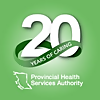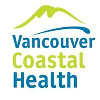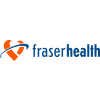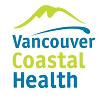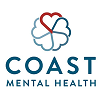Indigenous Patient Navigator, Community Transition Team
BC Mental Health & Substance Use Services
Coquitlam, BC
What you’ll do
Provide consultative and navigational services to patients referred to PHSA programs and services by supporting cultural interpretation and / or health literacy translation services and by supporting culturally-competent and safe practice access, system barriers, and navigation challenges).
Support patients in communications with physicians, nurses, and other frontline care staff.
- Support access and coordination of services for patients within the designated region. As required, coordinate client referrals to and from interagency, Indigenous communities, Indigenous organizations, and other health programs and services.
- Provide client support services within the hospital care system / community by initiating and maintaining working relationships with Indigenous clients to assess their needs and ability to access and receive culturally-safe care.
Support clients, as requested in the assigned service area, to understand, access, and navigate health care services.
- Advocate for the needs of patients within the health care system and liaises with other community and regional health organizations and promotes and works to strengthen collaboration with regional health authorities to improve patient care.
- Provide support and acts as a resource, as required, for healthcare providers and other staff members, regarding the provision of culturally safe care.
Coordinate client / family spiritual care requests and / or access to sacred spaces within the healthcare system to support Indigenous beliefs and practices.
- Support connection to community services such as Indigenous translators and arranges the language and cultural translation services where necessary.
- Maintain and updates appropriate documentation and records related to the needs of Indigenous patients in the health care system.
Develop and maintain a regional inventory of care related programs and services for clients.
What you bring
Qualifications
- A level of education, training, and experience equivalent to diploma or degree in a related health discipline, health or social sciences, or a patient care / clinical related discipline, and one (1) to three (3) years’ recent related experience working in Indigenous healthcare.
- Ability to travel. Valid Driver’s License is required.
Skills & Knowledge
Demonstrated knowledge and experience working with Indigenous (First Nations, Metis and Inuit) communities and organizations.
Extensive knowledge of Indigenous peoples’ demographics, languages, cultures, customs and traditions.
- Experience or knowledge of the health care system and community based resources within the region.
- Demonstrated knowledge, understanding and application of cultural safety and competency within healthcare.
- Demonstrated understanding of Canadian colonization, Indigenous specific racism and its impact on the current health and wellness of Indigenous peoples.
- Strong verbal and written communication skills.
- Ability to work effectively within a multi-disciplinary team.
- Ability to use sound professional judgment, empathy, compassion and integrity.
- Ability to prioritize workload, keep accurate records and write reports as necessary.
- Commitment to develop knowledge and understanding of legislative obligations and provincial commitments found in the foundational documents including Truth & Reconciliation Commission’s Calls to Action (2015), In Plain Sight (2020), BC's Declaration on the Rights of Indigenous Peoples Act (2019), United Nations Declaration on the Rights of Indigenous Peoples (UNDRIP), Reclaiming Power and Place Missing and Murdered Indigenous Women & Girls Calls for Justice (2019), the Declaration Act Action Plan and Remembering Keegan : A First Nations Case Study and how they intersect across the health care system.
- Commitment to upholding the shared responsibility of creating lasting and meaningful reconciliation in Canada as per TRC (2015) and BC's Declaration on the Rights of Indigenous Peoples Act (2019).
- As a strong asset for consideration, we are looking for our successful candidate to have : Knowledge of social, economic, political and historical realities of settler colonialism on Indigenous Peoples and familiarity with addressing Indigenous-specific anti-racism, anti-racism and Indigenous Cultural Safety and foundational documents and legislative commitments (The Declaration Act, the Declaration Action Plan, TRC, IPS, Remembering Keegan, etc.).
What we bring
Every PHSA employee enables the best possible patient care for our patients and their families. Whether you are providing direct care, conducting research, or making it possible for others to do their work, you impact the lives of British Columbians today and in the future.
That’s why we’re focused on your care too offering health, wellness, development programs to support you at work and at home.
- Join one of BC’s largest employers with province-wide programs, services and operations offering vast opportunities for growth, development, and recognition programs that honour the commitment and contribution of all employees.
- Access to professional development opportunities through our in-house training programs, including +2,000 courses, such as our San’yas Indigenous Cultural Safety Training course, or Core Linx for Leadership roles.
- Enjoy a comprehensive benefits package, including municipal pension plan, and psychological health & safety programs and holistic wellness resources.
- Annual statutory holidays (13) with generous vacation entitlement and accruement.
- PHSA is a remote work friendly employer, welcoming flexible work options to support our people (eligibility may vary, depending on position).
- Access to WorkPerks, a premium discount program offering a wide range of local and national discounts on electronics, entertainment, dining, travel, wellness, apparel, and more.
As per the current Public Health Order, full vaccination against COVID-19 is a condition of employment with PHSA as of October 26, 2021.
What we do
BCMHSUS) cares for people with complex mental health and substance use challenges.
BCMHSUS is part of the Provincial Health Services Authority (PHSA).
The Provincial Health Services Authority () plans, manages and evaluates specialized health services with the BC health authorities to provide equitable and cost-effective health care for people throughout the province.
Our values reflect our commitment to excellence and include : Respect people Be compassionate Dare to innovate Cultivate partnerships Serve with purpose.
Learn more about PHSA and our programs :
PHSA and BCMHSUS is committed to equity in our hiring and employment practices. With learning and compassion, we are addressing existing inequities and barriers throughout our systems.
PHSA is seeking to create a diverse workforce and to establish an inclusive and culturally safe environment. We invite applications and enquiries from all people, particularly those belonging to the historically, systemically, and / or persistently marginalized groups identified under the Human Rights Code.
One of PHSA’s North Star priorities is to eradicate Indigenous-specific racism, which includes dismantling barriers to health care employment at every level.
We welcome Indigenous individuals to apply and / or contact the Sanya'kula Team (Indigenous Recruitment & Employee Experience) for support at .
Indigenous-specific anti-racism initiatives are rooted in addressing the unique forms of discrimination, historical and ongoing injustices, and marginalization faced by Indigenous peoples.
These initiatives align with an Indigenous rights-based approach, recognizing the inherent rights and self-determination of Indigenous communities.
PHSA must uphold legislative obligations and provincial commitments found in the foundational documents such as including Truth & Reconciliation Commission’s Calls to Action (2015), In Plain Sight (2020), BC's Declaration on the Rights of Indigenous Peoples Act (2019), United Nations Declaration on the Rights of Indigenous Peoples (UNDRIP), Reclaiming Power and Place Missing and Murdered Indigenous Women & Girls Calls for Justice (2019), the Declaration Act Action Plan and Remembering Keegan : A First Nations Case Study.
